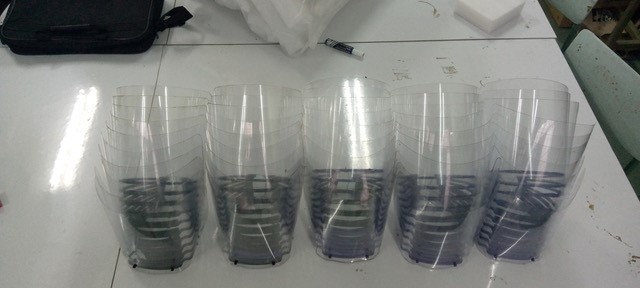Rapid response to crisis using digital fabrication in Ethiopia

PIs: Lucia Corsini (Institute for Manufacturing, Department of Engineering, Cambridge University, UK), Dr Tilahun (Bahir Dar Institute of Technology, Bahir Dar University)
Co-Is: Dr James Moultrie ( Department of Engineering, Cambridge University, UK), Dr Kate Brown (Department of Physics, Cambridge University, UK), Sewnet Alemu, Henok Mebrate (BIT Makerspace)
Collaborators: Dr Lara Allen (Centre for Global Equality, UK) and Sandile Mtetwa (Department of Chemistry, Cambridge University, UK)
COVID-19 poses a serious threat to the health care system in Ethiopia. An unprecedented demand for medical supplies, coupled with global supply chain disruption, has resulted in a widespread shortage of Protective Personal Equipment (PPE).
In Ethiopia, severe shortages of PPE, including face masks and face shields, have been recognised by the World Health Organisation (WHO) There are also reports of frontline workers struggling to access PPE which is further reducing limiting the provision of essential health services, including maternal care.
In other parts of the world, the failure of traditional industry to meet the demand for critical items has given rise to small-scale, localised production of PPE using digital fabrication (i.e. 3D printing, laser cutting, CNC milling). These initiatives leverage Open Source Hardware (OSH), where designs are made freely accessible so that anyone can use and modify them.
There are now over 1344 cases of coronavirus in Ethiopia and as cases are rising, this is a critical window of opportunity to tackle COVID-19. This project will enable the development of digital fabrication capabilities at the BIT Makerspace to support the production of urgently needed face masks and face shields. This is a stop-gap solution to locally produce PPE, at a time when these items cannot be imported in sufficient quantity or are subject to lengthy delays.
This research will build a comparative case study with a similar project in Malawi that is being supported by Cambridge-Africa ALBORADA research fund to produce PPE using digital fabrication3. This study will support the development of a rapid response roadmap to identify the key activities and requirements for deploying digital fabrication tools in a crisis. The insights from this intervention will be relevant to other regions with limited manufacturing infrastructure, and will improve preparedness for future crises.
*This project is supported by a Cambridge-Africa ALBORADA Research Fund COVID-19 Emergency Award

